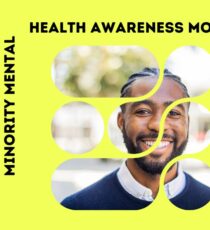
A year ago this month an employee email to her company stating she would be taking mental health days from work went viral. The compassionate response from the CEO to many felt somewhat surprising and comforting. It also opened up a conversation about the importance of taking mental health days from work.
Mental health days from work have always been an important part of emotional maintenance, particularly for people of color who generally experience inordinate amounts of stressors on and off the job. I remember when the rash of police shootings of black people highlighted the news every other week, in addition to the difficulties of my work environment, and whatever I had going on personally. I definitely could have used a few mental health days. Being someone who tends to push herself, I didn’t take them. More recently I’ve realized the value and importance of admitting when I need to power down. And now, I have no problem taking time off to address my needs.
Though it is changing, mental health issues haven’t always been standard conversation in the workplace. And it can be hard to be honest with your boss about your mental state. But taking time off from work to tend to yourself is critical. Whether you actually use the language of “mental health day” or just call out sick or take your personal days, addressing your mental health is just as important and valid as taking care of your physical health. In a recent post, I talked about how my emotional state critically impacted my physical health. I’ve known people who became so sick from work they ended up in the hospital, and worse. We need our jobs, but we can’t sacrifice ourselves for them.
Your mental health drives your ability to function, at work and in your personal life. Though some of us may feel we don’t have the time or paid days to take off, it is imperative to prioritize our emotional state and give ourselves the space we need to heal. If you work in an environment where that is not valued, this can be hard. But there may be some workarounds that can provide some relief, including getting a written note from your doctor. A colleague of mine got a written reccommendation from her doctor to take a 3-month sabbatical, and it could not be declined legally. She returned to her job refreshed and more productive.
Check out this piece in Women’s Health that outlines 8 signs that you may need to take a mental health day.
Remember to make yourself a priority (with no guilt!) Wishing you balanced and positive mental health.






Social Menu